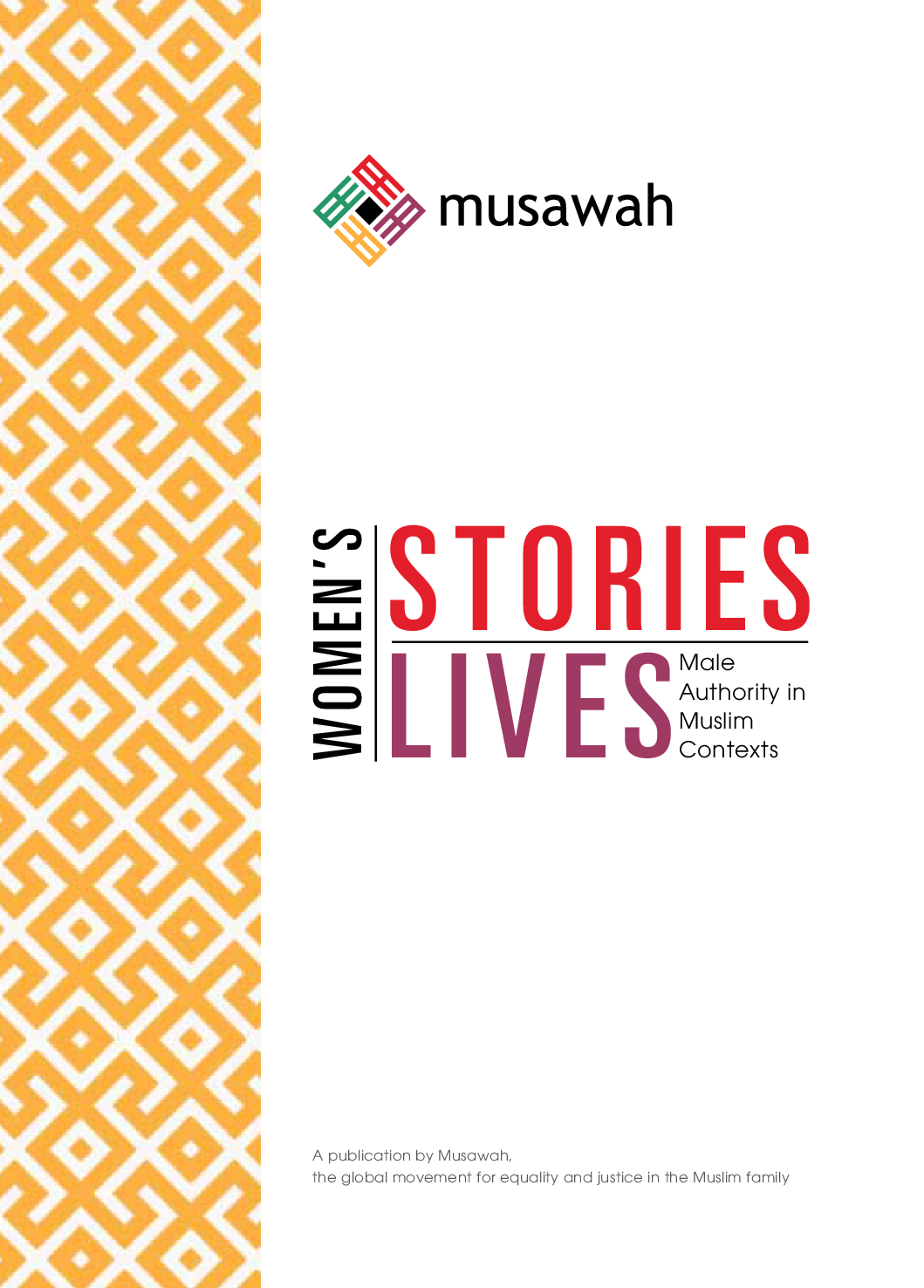Women’s Stories Lives: Male Authority in Muslim Contexts
Download: Women’s Stories Lives: Male Authority in Muslim Contexts
Musawah developed and implemented the Global Life Stories Project over several years. In 2011, a team formed in Indonesia to conduct a pilot project by developing the methodology, deciding on the scope and testing their process by documenting a number of stories. The team comprised five activists from Alimat, an Indonesian coalition working on reforming religious knowledge to advance gender equality and justice. The team decided to approach the project as a collective and mutual learning experience that is inter-disciplinary and grounded in national activism and the process of movement building. Over the course of a year, the Indonesian team worked carefully to better understand the issues, decide how to undertake the process in an ethical and principled manner and actually document the life stories of five Muslim women from different regions of the country.
At the conclusion of the pilot project, the project coordinator recruited Musawah Advocates from 12 countries (see box) to take part in the global project as country teams. Ranging in size from one to seven persons, the national ‘teams’ implemented the project with the guidance of one or more coordinating members. Team composition differed from country to country but included individuals from different disciplines such as Islamic theology, anthropology, law, literature, agriculture, development studies, gender studies, etc., who worked in a range of fields such as academia, women’s rights and advocacy work, international development, education, family law, human rights, etc. Most teams were supported by non-governmental organizations that worked on women’s issues within the country.
The Canadian Council of Muslim Women contributed to the project for Canada, where we produced a final report that was made part of the global report in ongoing consultations with the global team. The resource persons whose stories are shared all consented to having their stories included in those country reports and this global report.
The Global Life Stories Project has several objectives:
1. To better understand how women experience qiwamah and wilayah, the disconnect between textual (religious or legal) constructions of the concepts and women’s lived realities, how this disconnect is manifested in women’s lives and how it affects their life choices and experiences.
2. To highlight the voices of Muslim women from different walks of life and diverse national contexts and reveal insights they have gained from their life experiences, recognize the alternative knowledge they can offer and reflect their concerns and interests.
3. To collectively build alternative knowledge and develop a methodology that reflects our understanding of egalitarian Islamic ethics and feminism, thus working to counter the patriarchal ethos that informs Muslim family laws, practices and the production of knowledge.
4. To promote collective learning and capacity building in Muslim legal tradition, focusing on Islamic feminist knowledge that revisits patriarchal interpretations and engages critically with the tradition.
5. To produce knowledge that can contribute to social change in the participating countries and to Musawah’s activities and advocacy at the global level. Each national team tailored the methodology to their local contexts based on their specific agendas for women’s rights advocacy, public education or other work for legal and policy reform at the country level.

